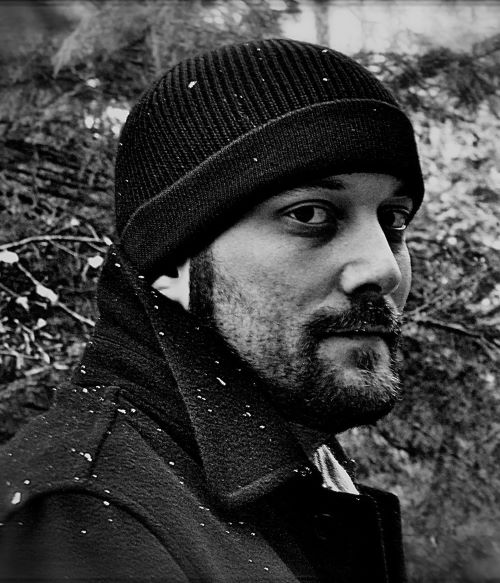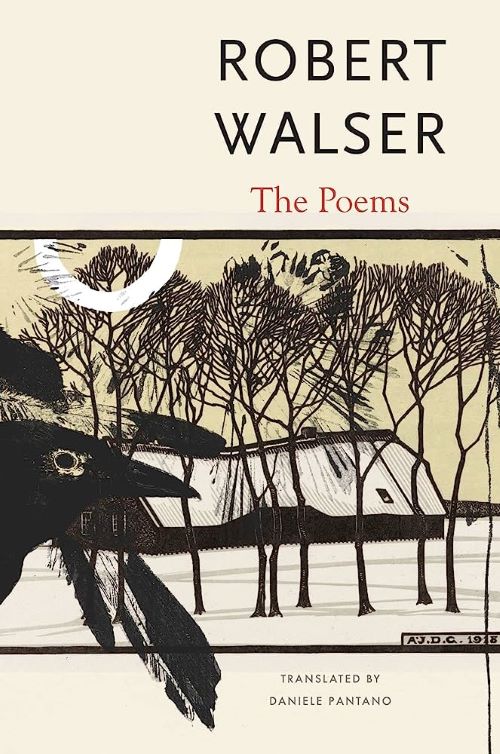There babbles a brookthat just wants to be on its own.Trees with their branchesdip down to the ripplesthat only want to flow,happily jump over one another.A poet sits by lamplightand scribbles a short poem,life forms a circle dance,some are talking, others are silent.What he shall not accomplish,he gives and takes in abundance.
The Brook
Robert Walser
Translated from the German by Daniele Pantano
Feature Date
- June 11, 2023
Series
- Translation
Selected By
Share This Poem
Print This Poem
“The Brook” from THE POEMS: by Robert Walser.
Published by Seagull Books in October 2022.
English Copyright © 2022 by Daniele Pantano.
All rights reserved.
Reproduced by Poetry Daily with permission.

Robert Walser (1878–1956) is one of the most influential authors of modern literature. He was admired by Kafka, Musil, and Walter Benjamin and has been acclaimed “unforgettable, heart-rending” (J. M. Coetzee),“a bewitched genius” (Newsweek) and “a major, truly wonderful, heart-breaking writer” (Susan Sontag). Walser left school at fourteen and led a wandering and precarious existence while producing poems, stories, essays, and three novels: The Tanners (1906), The Assistant (1908), and Jakob Von Gunten (1909). In 1933, he abandoned writing and entered a sanatorium, where he remained for the rest of his life. “I am not here to write,” Walser said, “but to be mad.”

Daniele Pantano is a Swiss poet, essayist, and literary translator. His work has been translated into over a dozen languages and published in various international journals and magazines, including Conjunctions, Evergreen Review, Guernica, Harper’s Magazine, International Poetry, Literary Hub, Modern Poetry in Translation, Plume, Poetry London, and 3:AM Magazine. Pantano’s most recent books are Home for Difficult Children: A Memoir in Verse (Black Lawrence Press), Robert Walser: The Poems (Seagull Books), and The Damned: Selected Poems of Georg Trakl (Broken Sleep Books). For more information, please visit www.pantano.ch.
The first complete publication of Robert Walser's poems translated into English.
Admired by the likes of Kafka, Musil, and Walter Benjamin and acclaimed 'unforgettable, heart-rending' by J. M. Coetzee, Swiss writer Robert Walser (1878–1956) remains one of the most influential authors of modern literature. Walser left school at fourteen and led a wandering and precarious existence while producing poems, stories, essays, and novels. In 1933, he abandoned writing and entered a sanatorium, where he remained for the rest of his life. 'I am not here to write,' Walser said, 'but to be mad.'
This first collection of Walser's poems in English translation allows English-speaking readers to experience the author as he saw himself at the beginning and the end of his literary career—as a poet. The book also includes notes on dates of composition, draft versions of the printed poems, and brief biographical information on characters and locations that appear in the poems and may not be known to readers. Few writers have ever experienced such a steady rise in their reputation and public profile as Walser has seen in recent years, and this collection of his poems will help readers discover a unique writer whose off-kilter sensibility and innovations in form are perfectly suited to our fragmented, distracted, bewildering era.
Poetry Daily Depends on You
With your support, we make reading the best contemporary poetry a treasured daily experience. Consider a contribution today.




